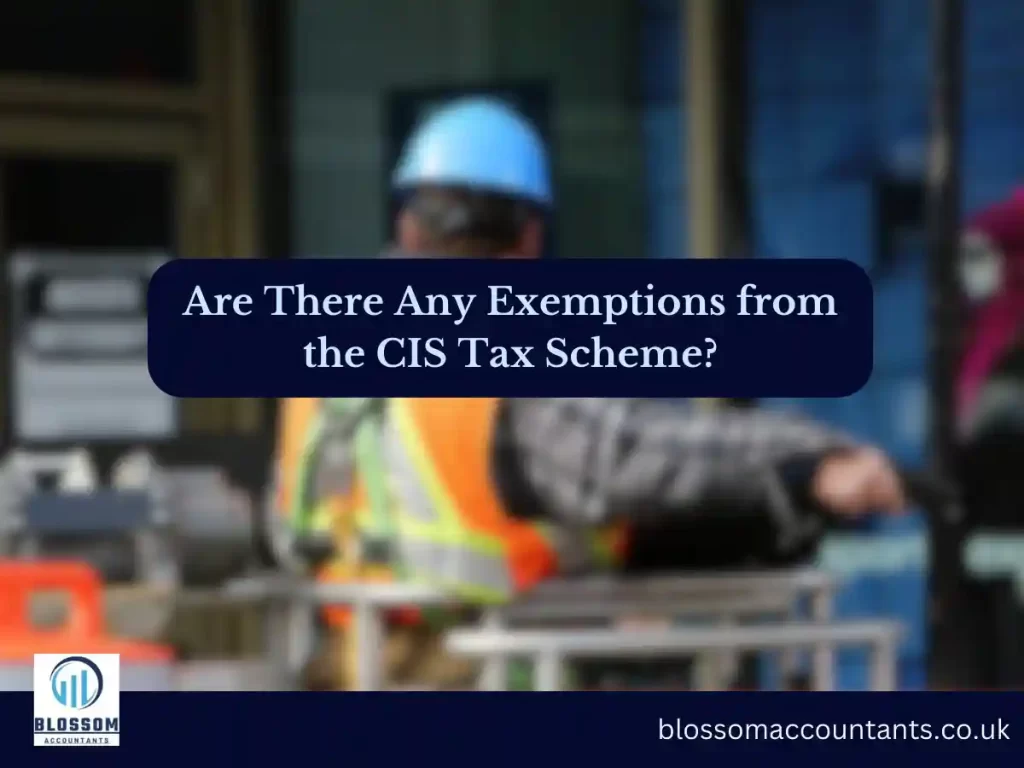The Construction Industry Scheme (CIS) Tax is a critical aspect of the UK’s tax framework, specifically designed for businesses operating within the construction industry. It ensures that appropriate tax deductions are made from payments to subcontractors, promoting tax compliance and reducing tax evasion.
This comprehensive guide will navigate you through all aspects of the CIS tax in the UK, providing a clear understanding of its purpose, requirements, benefits, and how to effectively manage your obligations.
Table of Contents
What is the Construction Industry Scheme (CIS)?
The CIS tax is a scheme implemented by HM Revenue & Customs (HMRC) to regulate tax deductions from payments made by contractors to subcontractors in the construction sector.
Who Does the CIS Tax Apply To?
The CIS tax applies to contractors and subcontractors involved in construction work, including trades like building, plumbing, electrical, and more.
How Does the CIS Tax Work for Contractors?
Contractors must register for the CIS scheme, verify their subcontractors with HMRC, deduct appropriate tax amounts from subcontractor payments, and submit CIS returns.
What Are the Responsibilities of Subcontractors Under the CIS Tax?
Subcontractors need to register with HMRC, provide their Unique Taxpayer Reference (UTR) to contractors, and declare their income on self-assessment tax returns.
What Are Gross Payment Status and How Can Subcontractors Obtain It?
Gross Payment Status allows subcontractors to receive payments without tax deductions. Subcontractors can apply for it based on certain criteria.

What Are the CIS Tax Deduction Rates?
The CIS tax deduction rates are 20% for registered subcontractors and 30% for unregistered subcontractors.
How Do Contractors Verify Subcontractors?
Contractors can verify subcontractors online through the HMRC portal using their UTR and other details.
What Are CIS Returns and How Are They Filed?
CIS returns are filed by contractors on a monthly basis, detailing payments made to subcontractors and the associated deductions. These returns are filed electronically with HMRC
How Does the CIS Tax Impact Cash Flow?
The CIS tax can affect cash flow for subcontractors due to deductions, but gross payment status can mitigate this impact.
What Are the Penalties for Non-Compliance with CIS Tax Regulations?
Penalties for non-compliance can range from fixed amounts to a percentage of the CIS deductions, depending on the severity of the breach.

How Can CIS Tax Be Managed Effectively?
Using digital tools and software can streamline CIS tax management, ensuring accurate record-keeping and timely submissions.
Can a CIS Tax Refund be Claimed?
Yes, if the total tax deducted exceeds the tax liability, a CIS tax refund can be claimed through the self-assessment tax return.
How Does CIS Tax Interact with Other Taxes?
CIS tax payments can be offset against other tax liabilities, helping to manage overall tax payments effectively.
What Are the Benefits of the CIS Tax Scheme?
The scheme promotes tax compliance, reduces tax evasion, and ensures that the correct amount of tax is paid by subcontractors.
Are There Any Exemptions from the CIS Tax Scheme?
Certain types of work and businesses are exempt from the CIS tax scheme, such as property investors and certain professional services.
Also read: HMRC Form CIS132

How Has the CIS Tax Scheme Evolved Over the Years?
The CIS tax scheme has undergone changes to improve efficiency, reduce administrative burdens, and enhance digital processes.
How Can Businesses Stay Updated on CIS Tax Regulations?
Regularly checking HMRC updates, using online resources, and consulting with tax professionals can help businesses stay informed about CIS tax changes.
What Are the Future Trends and Developments in CIS Tax?
The CIS tax scheme is likely to continue evolving with advancements in technology and changes in the construction industry.
What Are the Common Challenges Faced by Businesses Regarding CIS Tax?
Challenges include administrative complexity, managing multiple subcontractors, and ensuring accurate record-keeping.
How Can Businesses Maximize the Benefits of the CIS Tax Scheme?
By adopting efficient record-keeping practices, utilizing digital tools, and staying compliant with regulations, businesses can maximize the benefits of the CIS tax scheme.
Conclusion :
The Construction Industry Scheme (CIS) Tax is a vital component of the UK’s tax framework, aimed at promoting tax compliance and transparency within the construction sector. Understanding the intricacies of the CIS tax scheme is essential for both contractors and subcontractors to navigate their tax obligations effectively. By adhering to CIS tax regulations, businesses contribute to a fair and transparent tax system while ensuring their financial stability and compliance with HMRC. Staying informed, utilizing digital tools, and seeking professional guidance when needed will empower businesses to navigate the complexities of the CIS tax scheme successfully.
DISCLAIMER: We have written the UK accounting and tax related details for your information only. For professional advice or for any accounting task you require, you may need to speak to a professional accountant near you who can assist you. Please read our disclaimer for more details.

